Copernicus and Kepler broke centuries of assumed science by disproving geocentricism and promoted their own heliocentric views. Copernicus introduced and shocked the medieval world by claiming that the earth was not the center of the universe. Kepler progressed this concept by claiming that there was not a "mover of the planets" but rather a force (perhaps his conception of gravity) that moved the planets and caused rotations.
04 December, 2014
Copernicus and Kepler:Views of Heliocentricism
Copernicus and Kepler broke centuries of assumed science by disproving geocentricism and promoted their own heliocentric views. Copernicus introduced and shocked the medieval world by claiming that the earth was not the center of the universe. Kepler progressed this concept by claiming that there was not a "mover of the planets" but rather a force (perhaps his conception of gravity) that moved the planets and caused rotations.
English Bill of Rights (1689)
The Bill of Rights assumes that the monarch will be Anglican, and forbids the persecution of Protestants as the catholic James I did. While the Bill of Rights didn't permit such a liberal anachronistic understanding of freedom of speech as we have in America today, it did advance quite radically in its break from monarchical tradition. The Bill of Rights permitted freedom of speech within a parliamentary setting. This parliament also aided the process of lawcraft. The king could no longer create new laws or taxes without the meeting of parliament and their full consent.
The Bill of Rights also notes how James (assumably the II) "abdicated" England. When Mary married William of Orange, and he came over from the Netherlands, James II fled England. However, the reference of James II's abdication may be in reference to his misuse of theology and throne.
19 November, 2014
A Look into the Historiography of Art in the Thirty Years War
This depiction by the Spanish Diego Valázquez of the Surrender of Breda demonstrates several different ideals about the Thirty Years War that perhaps correlated with his own perspective. Firstly, this depictions shows absolutely no violence whatsoever. We know from numerous other accounts that the Thirty Years War was quite a blood bath. Also, he depicts the humiliating submission of the Dutch to the powerful (and perhaps even merciful) Spanish.
The second painting by the Flemish artists Jan Brueghel and Sebastien Vrancx depicts one of the battles among the many of the Thirty Years War. Probably more accurate to the general feeling behind the War than the previous painting, this depiction shows quite a degree of chaos and bloodshed. Also, the painters were able to interpret the vastness of the war through the landscape and sense of it "going off into the distance".
Aristotle on Tragedy and the Tragic Hero
Aristotle outlines the seven parts of ideal Tragedy as he attempts to cut down even literary terms to their essential definitions. He outlines them according to what he considers the most important of them in order from greatest to least.
Plot, he states, is the most important of the elements of tragedy. He says that it must have a beginning, middle, and end for structure, with events leading into each other. It must be whole in action, having complete events, and "of a certain magnitude", meaning that it needs to have length and be universally significant. Also a plot can be simple or complex. Simple plots have a catastrophe, whereas complex plots also have a catastrophe in addition to a transversal.
Characters are the second most important. Characters should be morally good, be true to their type, character, and themselves. They should also necessary or probable as they relate to a logical response and they should possess some idealised traits. When one comes across the tragic hero, pity or fear should be evoked as a mode of pathos. The hero should also possess a tragic flaw (hamartia) that determines the fate of the character.
Third most important is the themes of the play. These should be able to be proved through the actions in the play and acts a thesis in the play.
Fourth is the syntax, vocabulary, and lingual presentation of the play.
Fifth is the song, melody or general musical presentation of the chorus in the play.
Sixth is the spectacle of the play, or the degree to which the play is presented and how it is visually done so.
The last part of the play includes a cleansing (katharsis) of the emotions produced by the tragic hero. In this part of the play, the presentation must relate these emotions back to the intention and message of the play.
17 November, 2014
The Faustian Bargain
The Faustian Bargain calls that one trades over his soul to the Devil for eternity in exchange for some earthly benefit. In the case of Faustus, this benefit was to achieve divine knowledge. The nature of this bargain is quite short-sighted as it requires one to give up eternity for a brief amount of earthly glorification. As Faustus comes to realise this when his allotted time comes to an end, he regrets the bargain he made but is unable to retract it.
Faustus's main motivation for this bargain involves pure earthly incentive. He desires to achieve knowledge outside the bounds of humanity. He therefore concludes to achieve this knowledge through the power of Lucifer, assuming God would not provide him the same gifts. He also sought for immortality, which he does achieve through his bargain with Lucifer, except it is eternal suffering.
14 November, 2014
Characteristics of Rembrandt
The Dutch Golden Age was a time of political peace, financial affluence, and artistic innovation. During this time, artists especially were on the rise as Dutch nobility generously patronised their art. Generally Dutch artists are noted by their depictions of everyday life inspired by landscapes found in their own country. Unlike French artists at this time, Dutch artists accumulate a degree of wealth from their patrons' generosity. Rembrandt (1606-1682) brilliant uses dark colours and sepia overtones to portray a spectrum of emotions to present a message. In addition to this distinction, Rembrandt is famous for his use of impasto or the painting technique that has visible three-dimensional paint strokes made by dried globs of paint on the canvas.
The Scottish Revolt
When James VI of Scotland also became James I of England, the two countries were united whether either of them like it or not. However when it came to religion, James immediately dropped the traditional Presbyterianism of his Scottish origins and promoted Anglicanism as the national religion. As uncomfortable as Scottish Presbyterians became over this, James and his son Charles's made everything worst. Charles began on evoking "shipmoney" which served as a faux tax to raise funds against the Scottish themselves. Secondly, he imposed the Anglican Book of Common Prayer on all citizens of Scotland. This effortlessly was the last straw for the Scots who began rebelling against England and it's Parliament.
13 November, 2014
Conflicts among Oliver Cromwell's Followers
Though Puritans during the English Civil War agreed on what they were fighting for, there was quite an even split opinion on how they should be fighting for it. All Puritans agreed that Parliament needed to gain control over the monarchy before things got too out of hand. Puritans were divided into two sub-groups: the Presbyterians and the Independents. The Presbyterians, as the name would imply were Scot-sympathising Puritans. These Puritans were considered moderate in how they wanted to deal with the monarchy as they spoke against any sort of violence. The Independents were borderline radicals as they had zero tolerance for the corruption of the monarchy by Charles I, who they ended up putting on trial and beheading.
Consummatum Est
When Doctor Faustus performs a blood ritual as he signs his soul over to Lucifer, he utters the words "Consummatum Est". This is a direct reference to Christ's death on the cross, and though Faustus may be committing spiritual suicide, it is quite profane. When he makes this reference, he is making his allegiance to Satan a counterfeit and an inversion of the accomplishments of Christ's death on the cross. Furthermore, when using Christ's words, he is either elevating himself or profanely degrade Christ, both of which are demonic in nature (ie. like Lucifer). In either case, Lucifer later rebukes Faustus for even mentioning anything associated with Christ.
12 November, 2014
Leading Events of the English Civil War
The Reformation was echoing throughout Europe far after it's beginning in 16th century Europe. Years of religious wars resounded in France, Germany, Italy, England, and others, causing both internal and international struggles. The tensions of the Reformation created another dimension of political association and distance, Protestant vs. Catholic. This became the focus of diplomacy and war, the struggle between political views often correlated with a religious overtone. When England was finally beginning to make a change in direction from Catholicism (most evident in the creation of the Church of England by Henry VIII), James I violently brought England back to old Catholic ways by his promotion of divine right of kings and absolute monarchy. This drastic shift was only made worse by his son Charles I who demanded money and power from Parliament. Anglicans and Puritans were constantly reminded of each others flaws during this time with the aid of interference from Spain, Scotland, and France and eventually broke out into the English Civil War.
10 November, 2014
The Many Faces of Faustus
The story of a man who seeks power and knowledge is not uncommon throughout history. Even when man's solution to weakness and ignorance is in the realm of Lucifer's power and black magic, the story can still be seen in such as the following examples.
The Bible
The Bible is the first source where I remember this theme to be apparent. The Book of Job accounts for a bet placed between the devil and God over the faith and resilience of Job. Despite many challenges and temptations, Job never curses God's name.
The second time I see this idea is when Jesus goes out into the wilderness and is tempted by Satan. He tempts him not only to break his fast but to bow before him for all the power in the world.
Doctor Faustus (c. 1592) by Christopher Marlowe
The work by Marlowe is the first rendition that uses the name "Faustus" and provides the base plot specifics for the following examples. Here, a university professor is frustrated by not being able to know everything and trades his soul to the devil for the ability to learn all via his servant Mephistophilis. He is constantly tormented by both angels and demons throughout the play who play in his conscious.
Faust (c. 1832) by Goethe
The work by the mysticist German philosopher, Goethe respins the story first presented by Marlowe. Presented in two parts, Goethe's work offers several differences. The story begins in heaven where Satan claims that he can turn God's favourite human (Faust) against him. Faust, who is frustrated by the inability to learn transcendent knowledge, agrees to Mephistopheles compact with the devil. He later seduces and impregnates Gretchen and drowns their unborn child, demonstrating how corrupt Faust had become. The second play begins with Faust awakening in a mystic world where he continues a cycle of adventures.
Doctor Faustus (1947) by Thomas Mann
This story closely resembles Marlowe's original. Adrian Leverkühn, a fictitious music composer, becomes increasingly depressed by his writers-block. A demon offers to help him for 24 years in exchange for eternal service to Lucifer. He agrees and intentionally contracts syphilis, through his insanity he composed the most excellent music. Near the end of his life, he was plagued by images of death and the apocalypse.
Captain America (1968) by Marvel Comics
First appearing in the 107th Captain America comic book series, Doctor Faustus plays one of the antagonists in the series. While holding no supernatural powers, he is able to convince people into either insanity or suicide through his genius and extensive knowledge of human psychology. Much like the character Mephistophilis in Marlowe's work, Doctor Faustus is a master of mindgames and deceptive mental manipulation.
04 November, 2014
Utopia Book 2 Response Questions
1) Who are the slaves in Utopia?
One might assume in a place as perfect as Utopia, one has not the need or moral mind for slavery. On the contrary, slavery seems to be used fluently but differently than the cruel connotation we assume with it today. Firstly, slaves are never bought in Utopia, they are placed into their position (much like a social order) for very good reasons. The slaves in Utopia come from three different scenarios: they were prisoners of war; they committed horrible crimes within Utopia; or they sentenced to death in another country but saved into slavery by Utopians. Also, in distinction of most slave cultures where slavery is hereditary, in Utopia, it is not.
2) What do you think of the Utopian marriage customs? Did you find anything particularly unexpected or unusual?
Women cannot marry until they turn 18 and men cannot marry until 22. Premarital relations are strictly forbidden and if broken, the individuals are banned from marriage for life. Also the punishment for infidelity is slavery. These rules are to keep marriage a desirous thing rather and the society to continue to have marriages. An odd custom they do is the bride and groom are revealed to each other naked in the presence of a third party as to not be surprised on the day of their wedding.
3) What sorts of penalties are there in Utopia? Does this seem to be a lenient society, or a harsh one? What case can be made for the Utopian system? Do you agree with it?
Punishments are quite personalised in Utopia. The legal system in Utopia is lenient or harsh depending on what the crime's cause was. It doesn't function like an equation like it works today: stealing plus a certain amount of money equals prison. When a crime is committed, no matter what it was, it goes through a court who determines a punishment based on a single factor: How does this crime affect society?
4) How might More respond to Hythloday's statement that there are no lawyers in Utopia? Why?
Hythloday claims that Utopia has no need for lawyers because the laws are so simple, people can defend themselves as long as they're innocent. More, who studied law himself, might realise the only real reason lawyers exist is to manoeuvre a labyrinth of loopholes that exist in English law.
5) How do the Utopians treat other countries? What is the tone of the paragraph on European treaties beginning on the bottom of p. 64? Why don't the Utopians think treaties are a good idea?
Utopians, much like the Swiss, avoid conflict at all costs. They do not sign any treaties of any sort because they believe that treaties can be manipulated and broken. Instead, Utopians rely on the the word of diplomats.
6) What do you think of the Utopian methods of warfare? Why might they be superior to those of most other nations? When do the Utopians actually fight themselves instead of hiring mercenaries?
Utopia, again, avoids War at all costs. Though they hold this ideology, they work on developing and training a powerful army for mostly protection. When war is declared, they utilise mercenaries (Zapoletes), and only fight for themselves as a last case scenario. Also, they believe strength in an army to be animal-like, so they utilise strategy over strength. They will infiltrate the country with propaganda offering rewards to join the Utopians or assassinating enemy leaders.
28 October, 2014
Response Question to Ignatius Loyola's Spiritual Exercises
1. What is the difference between what Loyola describes as "spiritual consolation" and "spiritual desolation"?
Loyola describes spiritual consolation to be the interior movement of the soul, realising its intense inclination to love its creator. Consequently, the soul loves only God and no other worldly thing. The complete opposite of this action is what he describes to be spiritual desolation. This is when the soul not only rejects God, but further descends into the love of low and earthly things.
21 October, 2014
Thirty Years War and the Habsburg Dynasty
What role did the desired expansion of the Habsburg Dynasty play in the Thirty Years War?
The Habsburg Dynasty's desire for expansion influenced the Thirty Years War through their intermingling with different countries as allies throughout the war. While their capital in Vienna was sacked and fought over many times, the Habsburgs did not resist to stick their fingers fragile and manipulable "Play-doh" of other nations politics.
Edict of Nantes (1598) Response Question
Through the Edict of Nantes, Henry IV established Catholicism as the national religion of France, which was the majority consent of France, as well as giving Huguenots the freedom to worship. The freedom provided by this edict is quite radical when considering the recent history of Protestantism in France. When thinking anachronistically of both religious tolerance as well as the acceptance of Protestantism. The Edict of Nantes gives Protestantism many rights, yet Henry IV "expressly forbids...its exercise...other than the places permitted". Also "books...called Reformed may not be printed and publicly sold...except in places where permitted". These restrictions may seem quite deliberating, however, the Huguenots in France would've seen this document as salvation rather than restriction.
20 October, 2014
Hythloday on Capital Punishment
Hythloday claims that death is far too harsh a punishment for a petty crime like thievery. He argues that people only commit thievery because they are in need of something, and in More's time, all people in a thief's class would desire is food. Hythloday's solution to thievery in replacement of the death penalty is to provide food to the people. Hythloday says that because the issue of thievery lies in the society and not the citizen, the society is the one that should change.
19 October, 2014
Raphael Hythloday in Thomas More's Utopia
Raphael Hythloday makes an interesting addition to More's writing not only acting as a voice in this dialogue but also as a character himself. Hythloday plays the role of a guide, like Lady Philosophy in Consolation of Philosophy, he seems very wise and knowledgeable, but also like Virgil in The Divine Comedy, he is very relatable: he holds his own history, interacts with the reader, and seems like an intriguing person to get to know. Also, the audience may even be confused that More's "guide's" name means nonsense-peddler, but we are still convinced to trust him.
Thomas More's Utopia Preface
The Preface to Thomas More's Utopia is direct to Peter Giles, a political and social acquaintance of More. While the letter reserves some degree of high style formatted dialogue, like in Boethius's Consolation of Philosophy, it reserves another degree of humour and amiable tone. More is extremely cautious and nervous of the publication of his work in the preface, articulating fears of judgement and rejection. Through the tensions expressed in the preface, the audience is to expect a complex work that holds socio-political criticisms.
16 October, 2014
The Catholic League (1576)
 |
| Assassination of the Duke of Guise |
Henry I (Duke of Guise) formed the Catholic League in 1576 in an attempt to forcefully remove Protestantism from France. Philip II of Spain, the Pope, Jesuits, and many Catholics both in and outside of France were strong supporters of their movement. Their main goal at the end of the 16th century was the removal of the Protestant-sympathizing King Henry III.
Second Shepherd's Play Response Questions
11. How do the shepherds punish Mak for his thievery?
The shepherds originally decide to slay the pathetic creature they have caught. Instead, and much more mercifully, they roll him up into a large sheet of canvas and beat him with rods until they are out of breath.
14. What gifts do the shepherds bring the Christ-child?
After coming to the Christ-child, they begin to both exalt him combined with adoring his cute child features. After doing this each of the shepherds present him with a gift. Coll presents him with a bob of cherries, Gib presents him with a bird, and finally, Daw presents him with a ball to play Tennis.
18. Discuss the use and effect of anachronism in the play?
Anachronism is used inaccurately in the play to further be clearer in what the author is trying to state. The author uses anachronistic phrases not for the sake of inaccuracy, but rather to avoid the use of unknown and unacknowledged contemporary terms. The author does this to be clear with his audience, not an audience that would’ve been present at Christ’s time.
15 October, 2014
Edict of Nantes 1598
The Edict of Nantes, established in April of 1598, was a declaration of King Henry IV of France that allowed Huguenots to live freely in France. This was significant both for religious and political reasons. By becoming religiously tolerant of Protestantism, France became yet another refuge for non-Catholics. At the same time, it became a battleground for new Huguenot ideas and traditional Catholicism. Politically, the French government became more distinguished from Rome, that is Catholicism. By being legally tolerant of Protestantism, it made a statement both about Rome as well as the new religious ideas popping up over the rest of Europe.
07 October, 2014
The Peace of Augsburg 1555
The Peace of Augsburg in 1555 was an agreement between Charles V and the independent German states. This agreement allowed the princes of these states to assign themselves to either Lutheranism or Catholicism respective to the demographic make up of each state. This further encouraged German particularism due to the fact that most national states held national religion. When each state adapts different religions, they further articulate themselves separate from each other.
06 October, 2014
Satire in Late Medieval England
How does the English Literature of the late medieval period demonstrate both the tension in the social fabric of late medieval England and a consolidation of traditional beliefs?
The literature that circulated in late medieval England was fluent with critical satire of socio-political problems of the time. This is most apparent in Chaucer's work, who relentlessly critics the members of the Church and other hypocritical members of his society. Similarly, William Langland speaks out against the Church's corruption with a harsh voice in Piers Plowman. However, these works did not speak against a traditional Catholicism, rather the corruption of that tradition and the injustices it forced onto the English people. The reverence for the Church is abundant throughout the mystery plays, and even in Langland's and Chaucer's work. This appreciation of Catholic tradition is quite apparent in the retention of Catholic tradition via Anglicanism even after England's split from Rome.
Calvinism vs. Lutheranism
Lutheranism, begun by Martin Luther (1483-1546), holds the view that salvation is open to everyone who seeks after it, and then holds faith with good works. Lutheranism also states that while God is a supreme authority, man holds some freedom and responsibility in his own life.
Calvinism, initiated by Jean Calvin (1509-1564), believes in predestination. This idea states tgat because God is omniscient, he already knows who will enter heaven. Therefore, there are already a chosen few who will obtain salvation, and they will be known through their good works, which is not the pinnacle of their salvation. Also because God is omniscient and omnipotent, he determines every action of our lives.
02 October, 2014
Medieval Mystery Plays and the World of Stagecraft
Mystery plays went throughout Medieval Europe and were especially popular in England. These plays roamed from town to town presenting plays from stages on wagons. The actors consisted of basic townspeople who were funded by guilds in the town. Generally, these plays consisted of cycles which portrayed biblically-based stories, supposedly for the purpose of teaching the illiterate public people of these towns the gospel.
Summary of the York Play of the Crucifixion
The York Play of the Crucifixion outlines the scene in which Jesus is nailed to the cross by Roman soldiers and the raising of the cross. The soldiers appear unphased (perhaps even numb) to Christ's grotesque torture. They also seem ignorant of his crime, treating him like a lamb about to be slaughtered at a grecian butcher. Christ remains silent except for two monologues (or dialogues with God), through the entire painful scene.
29 September, 2014
Langland's Piers Plowman Passus 6 Question
What might lines 302-318 in Passus 6 imply about social unrest?
The cynical implication that Langland gives when describing the state of the poor and the complaints they give is far from subtle. He accuses the poor of complaining for more, though they are given the basic necessities (as outlined by Passus 1, 20-25). He describes the beggars "would not eat bread that had beans in it" (6, 303) nor "drink half-penny ale in any circumstance" (6, 305). Or "unless he's hired at high wages he will otherwise complain" (6, 312) and "grows angry at God" (6, 316), "then curses kings...because they legislate laws that punish labouring men" (6, 317-8).
28 September, 2014
Piers Plowman Response Question
How is the figure of thought, allegory, used in the selections from Piers Plowman that you have read? Why might this be an effective medium for the content of this poem?
Allegory is used fluently throughout Langland's work, both on a micro and a macro level. Langland uses allegory in both of these ways to make a moral lesson to his audience. He names different virtues as virtues as people, "Charity has proved a peddler and principally shrives lords" and, "Reason shall rule you all" and, "the captain of the castle is called Wrong". Later he assimilates Piers the Plowman with the figure of Christ. He describes Piers "appareled like a pagan in pilgrims' manner" and "as lowly as a lamb". Piers guides some noblemen to Saint Truth, "Conscience and Kind Wit...persuaded me to swear him I'd serve him forever". The medium of this allegory is quite powerful to his intended due to the strong socio-economic connotations that his society held with the idea of the lower class. The upper class and ecclesiastically-associated figures held such negative connotations, it would have destroyed the character of Piers.
26 September, 2014
Machiavelli's Prince Response Questions
2. How important is force in the rule of the State?
Machiavelli believes "there cannot be good laws where there are not good arms, and where there are good arms, there are bound to be good laws". Machiavelli also dissents with employing mercenaries as a government force saying, "any man who founds his state on mercenaries can never be safe or secure", because "they have no other passions or incentives...except their desire for a bit of money".
3. What seems to be Machiavelli's view of human nature?
Machiavelli holds an extremely cynical view of humans creating the "general rule" saying, "they are ungrateful, fickle, liars, and deceivers, fearful of danger and greedy for gain". Therefore Machiavelli says that in order for the Prince to maintain control, he must be not loved nor hated, but solely feared by all citizens.
6. Contemporaries saw Machiavelli as a dangerous man. Does The Prince offer any ground for this opinion?
The opinions Machiavelli provides in The Prince certainly offer grounds for assuming Machiavelli as a dangerous man. Had Machiavelli achieved power in Italy, his reign according to his own advice to the Prince, would resemble what contemporaries would not know as Nazi Germany or Fascist Italy. The imperil government that intimidates, holds a strong nationalist army; that keeps a tight grip on its people, certainly would also resemble the frightening Roman tyrannical emperors contemporaries would have been familiar with, especially after the rise of democracy in 15th century Florence.
18 September, 2014
AP Euro History Multiple Choice Questions 1
1. c.
Christian Catholicism existed practically all over Europe before the Italian Renaissance. For this reason, and the fact that Italy had all the other advantages, religion was the exception for their reason for initiation of the Renaissance.
2. d.
Italian Renaissance society focussed on the development of the individual through education, adaption of classical antiquity, and religion, which is included in all the mentioned studies besides D.
3. e.
Renaissance humanism focussed on the opposite of all mentioned besides 'e.'. Though humanism is the deemphasis of scholasticism, it still appreciated it for what it was.
4. b.
Neoplatonists is the only group listed that is associated with a 'belief'-system.
5. b.
While the invasions from the French may have introduced the French to a new art culture, it only hindered the Renaissance art achievements.
6. a.
The Treaty of Lodi is the only event that crippled foreigner from seeing the Italian Renaissance by inhibiting their ability to enter the Italian peninsula.
7. d.
This choice was the only choice that is specifically an attribute to Renaissance art, most of the others could apply to other art movements as well.
16 September, 2014
Response Question from the Excerpt of Margery Kempe
1. How does the biographical information given about Margery Kempe in the introduction inform your reading of her accounts?
There are three very important biographical details outlined in Margery Kempe's introduction in the NAEL. Firstly, that she experienced a severe mental breakdown that may have precipitated her many recurring spiritual visions. Secondly, that she was never able to read or write and was illiterate, meaning she used a scribe to dictate her text and that all she knew of the Bible was from an oral tradition or her presumed visions. Thirdly, that she was the daughter of the mayor that, in addition to her proclamation of faith, may have protected her from contemporary accusations of heresy. These facts are very important in not only analysing the legitimacy behind her claims, but also the people she affected through them.
Response Question to Langland's Piers Plowman Passus 1
6. Compare and Contrast the nature of "Truth" in Chaucer's poem, and the "Truth" that is discussed in Passus 1 of Piers Plowman.
Both of these late Medieval English authors utilize Truth as a character in their literary works. They employ Truth as a God-like figure, perhaps even meaning to present God himself through this name. Truth, in both of these poems, is a being that you should please in order to, according to Chaucer, be "delivered, it is no fear" or in the case of Langland, "be certain that their souls will ascend to Heaven". The subtle difference between these two Truth's is that Langland's Truth reigns as not only salvation but also as supreme judgment ("Truth has determined their trespass in full."), where Chaucer only describes the former. Also, in Chaucer's poem, Truth seems to seek you out if you do good, whereas in Langland's writing, "Truth is the truest treasure on Earth" but it also something that must be pursued and sought out for.
11 September, 2014
Merriman's History of Modern Europe: Response Question the Fourth
5. Describe the various political structures of the city states.
Between the 14th and 16th centuries Italian city-states toggled between a set of approximately four definable government systems.
The most popular of these included oligarchical republics which were usually run by mercantile families. The most famous of these was Florence which was ruled by the Medici family for many decades. Others included Venice, Siena, and Lucca.
Despotic Republics functioned more politically usually held by one ruler. This was less popular form of government because it gave little power to the merchant class. Genoa, Bologna, and Perugia were famous for this government.
Inherited despotism consisted of one family ruling over a city over many years and generations. The most famous of these was the powerful Visconti family in Milan.
Papal power existed in all city-states but those who relied heavily on ecclesiastical governance were considered papal states. After the fall of merchantile families from urban power, the people relied heavily on the Pope's influence and financial salvation.
Merriman's History of Modern Europe: Response Question the Third
3. Explain the terms: "popolo grasso", "mediocri", and "popolo minuto".
Popolo Grasso referred to the high or upper class of Italian city-states. It literally means 'the fat people' describing both their figure and their bank accounts. These usually held most political power due to their financial power.
The Mediocri refers to the middle class, or at least whatever form of it Italian states had at that time. These people often worked in trade as merchants.
The lower class was referred to as popolo minuto, meaning 'little people'. These people had almost no socio-economic power whatsoever and often relied on papal power for survival.
Response Questions to Documents regarding Medieval Witchcraft
1. Why did the Church devote such energy to the destruction of witches?
The Church gained a sense of mass hysteria from the idea that not only was witchcraft harmful for a community and nation, but also from the notion that witchcraft was hard to detect and "spreads like an infection".
2. Why might the obstruction of inquisitors occur?
People who were aware of the mass hysteria and its effect on the justice system of the inquisitors grew to distrust the entire system. Thus, these people were likely to obstruct any "witch-hunt" behaviors.
3. Why might a person, as the young man described in The Ant Hill, make such a full confession of his witchcraft?
Sometimes, confession of witchcraft was a much easier way than receiving punishment. Once someone confessed, they were either spiritually helped or killed instantly, if they really wanted to hear a confession but the prosecuted didn't provide one, much prolonged torture usually occurred.
4.Why did authorities employ torture in cases of witchcraft?
Inquisitors found torture to be the most effective way of extracting confessions from the accused. Though the confessions may not be true, they at least would provide reason for unknown occurrences.
5. What was the procedure followed by the inquisitor when torturing a suspect?
The inquisitor would revisit the accused person he had tortured to confirm a confession he achieved during the torturing process. This act assumes that the confession achieved from torturing was not always accurate, thus disintegrating the original purpose of torture.
6. What does The Witch Hammer suggest about cases of lying as evidence to secure a confession?
The Witch Hammer implicitly states that if a person is found to be lying, even if all other evidence suggests their innocence, they may be assumed guilty. This follows from the reasoning that if Satan is the father of all lies, then those who make lies must be his disciples.
Response to Questions on Aquinas's view on War
1. How does Thomas prove the existence of God?
Aquinas outlines the fact that because God created everything and that we are his creation, we have a limited understanding of what is real. As 'finite' creatures, we cannot easily comprehend an 'infinite' being such as God.
2. What are Aquinas's views about war? What is just war?
Aquinas says that a war is not morally legitimate unless it is just. In order for it to be a just war it must fulfill three criteria:
1) It must be called by a sovereign authority.
2) It must be a just cause, that being, the enemy should be attacked on account of being at fault.
3) The declaration of war must be from a rightful intention.
3. What are the political assumptions Thomas makes in his discussion of war?
Aquinas not only assumes that people would be willing to begin war through an authority, but that also this authority follows a Christian code. He also does not account for non-national individuals who may desire their own form of justice.
4. How does Christianity limit war?
The criteria outlined by Aquinas in his work limit the excess amount of quarrelling that takes place, assuming that people would be following his criteria. Also, he promotes the avoidance of fighting war on holy day, unless it is completely necessary, yet still it still limits the amount of war that can be waged in any given year.
5. Who do you think Thomas was trying to persuade with his book? What kind of audience would you have been suited for this method of argument?
Aquinas writes in such a high style and intellectual format that he must intend to write to a political or high-social audience. Also the subject matters he talks of in this section indicate that it called out politicians, though in other sections of the Summa Theologica, Aquinas could write to humanity, including the vernacular.
06 September, 2014
Reflection on the Second Stanza of Chaucer's 'Truth'
"Tempest thee nought al crooked to redresse
In trust of hire that turneth as a bal;
Much wele stant in litel bisinesse;
Be war therfore to spurne ayains an al
Strive nat dooth the crokke with the wal.
Daunte thyself that dauntest otheres deede:
And trouthe shal delivere, it is no dreade."
Chaucer uses great imagery in the language he presents to his audience. He contrasts the words of control and the trust in things "that turneth as a bal" with the benefits of "stant in litel bisinesse". Yet he also juxtaposes the chaos of a "tempest" when one tries to take control of life ; "spurning ayains an al" and the "daunting thyself" with the consequence of "trouthe shal delivere". That final line composes the resounding and comforting chorus throughout the whole poem, saying that by trusting in Truth, one shall be saved from earthly fears.
04 September, 2014
Merriman's History of Modern Europe: Response Question the Second
In post-Roman Europe, the fragmented states of Europe still held a degree of theoretical unity in that they all were bound by some universal religious and/or political authority. The question that is really to be asked is not who has this authority, but what does the theoretical authority mean in terms of legal power. By the 15th century, many western European fragment-states were governed by a local mercantile assembly. Though the assemblies had to submit to a 'national' law, the rulers had very little power over the people. The assemblies acted as political and legal buffers between national law and the common citizen. The mercantile assemblies held all socio-political institutions in the palm of their filthy rich hands. Rulers, both political and religious, needed to borrow money from these assemblies, and when withheld, accounted for a great deal of national economic damage.
Most of the common class were happy following local laws and paying local taxes as opposed to national. Thus, many of the common class remained unopposed to a suffering national government. The same applied to geographic divisions, nobles who offered land divisions were often more generous than a national counterpart, due to the fact that nobles received a direct service from peasants. Churchmen received a steady income from the universal Christian population. However, when the political rulers saw a need, and the Pope was to agree, church finances often tangled into a legal tax.
The Wife of Bath and Christine de Pizan: A Battle of Womanly Vice
Chaucer's Wife of Bath acts in all ways womanly yet none at all. Chaucer brilliantly composes his character to not only highlight the commonly associated vices of women, but also to demonstrate the fragile and angelic character traits. As promiscuous and loud the wife of Bath is, she possesses a strong desire of loyal companionship. In her story, she further demonstrates these two sides of her personality. When the young man is asked whether he'd prefer a wife who is beautiful and promiscuous or ugly and loyal, Chaucer (through the Wife of Bath) satirizes the restrictive misogynous view of "the two types of wife". Although to satirically prove a point, Chaucer admits truth in the stereotype he illustrates, the Wife of Bath holding a great deal of womanly vices.
On the other side of Medieval feminism, Christine de Pizan presents in her The Book of the City of Women a view of woman void of satire and vices seen in Chaucer's work. Here, Christine portrays herself learning about the role, rights, and capabilities of women from divine 'Reason'. She writes with the eloquence of classical Latin commonly associated with that of a man's oratory, also providing her character with the classical and traditional virtues often associated with philosophers.
However, de Pizan later wrote a book satirizing the view of women in her medieval societal context. The Querelle du Roman de la Rose presents women both as treasures to obtain through courtly love but also satirically as creatures of vicious seduction to be watched closely.
03 September, 2014
Merriman's History of Modern Europe: Response Question the First
7. What were the reasons for agricultural growth after the Black Death?
The Black Death in Europe managed to reduce Europe's entire population to two thirds its original size. However, after the gradual demise of this plague had entirely taken place, Europe's population began to rapidly grow again. It grew so much in this period of time that it had far surpassed its original size. I propose the de-urbanisation, that is, the mass movement of peoples from cities to rural areas to escape contamination, provided enough physical room to support a growth in population once the Black Death ceased plaguing Europeans. Merriman speculates that this growth was due to agricultural growth. After the plague subsided "plots that had been abandoned were plowed once more" (1.15, Merriman). Consequently, the inflow of agricultural workers caused the progression of agricultural technology and politics, including the "three-crop system".
27 August, 2014
Summary of Chapter 12 in Breisach's Historiography
Chapter 12 in Breisach's Historiography explains the modifications of the traditional historiographic understanding (as the Chapter's title might suggest) throughout from Medieval Europe to the founding of the New World. Breisach also heavily focuses on national identity in explaining some of the changes that occurred over time in historiographic study.
The emergence of nations after the Fall of Rome, what some historians term as the beginning of the Medieval period, caused a sudden necessity and scramble for specific and recorded nation history and identity. The identities founded in respective nations (commonly founded in that of Rome due to the shadow of its expanse) came to create a civilised culture and an ordered society based on an identity for a new nation. In other words, the common mindset of many pre-enlightenment historians was that without a history or national identity, there was no hope for a civilised future. Perhaps this fear derives from the collapse of Rome into barbaric turmoil, but nevertheless, it reigned to be a true fear.
With the introduction of the New World and its people, Europeans were forced to account for entire populations of people with almost no identity with anything close to a "nation". There was absolutely no universality among tribal native Americans in any aspect of life (including religion and politics), all of which was unheard of in the tight parameters of post-Rome Europe. Breisach proposes that the reason behind the Europeans' urgency to colonise (read "civilise") the New World came from a great fear of a foreign and unknown culture. Thus, Europe (especially Spanish conquistadors) saw it their duty to provide or impose a national identity and history on the native populace, through both political presence and religious conversion.
Enlightenment figures and philosophers, which Breisach mentions Francis Bacon as one, began to discuss and challenge the old traditional understanding of national history and identity. For once, it seemed that Enlightenment thinkers were able to establish the ideas of national identity and national history as two different entities of a given nation. This new mindset perhaps destroyed the idea of imperialism as colonies began breaking from their empires. For example, the United States of America created a national identity with very limited history in their breaking from the British Empire.
26 August, 2014
Summary of Chapter 11 Breisach's Historiography
Chapter 11 in Historiography deals with the affects of the Renaissance and Reformation on the humanists and historians of that time as it relates to historiography. Breisach argues that the Renaissance, especially in Italy, reflected the returning to old Roman ways. Humanists of this time more than often write to retrospectively glorify Roman ideals and often glorify resembling ideals observed in their respective societies, politics, and culture. Also, Breisach argues that though all were nominally Christian, the worship of Rome's ideals came with their pagan gods and mythology.
Adversely, the Reformation was a large step away from the idealisation of Rome as it was the first step away from the Roman "catholic" ideals and reconsidered what was morally best, based on an entirely different set of moral and cultural ideals. English and German humanists of this time portray their histories in much better light than Italian humanists, who saw this as the end of Christianity. The Reformation therefore marked the first time in European history where culture and religious beliefs were not bound together by a Roman Catholic law, but rather could now be completely "denominallised".
16 August, 2014
Historiography: Introduction
Historiography, or the study of writers of history, is a complex and often unnoticed subcategory of the study of history. Many people, from the common joes to the Harvardian scholastics, assume the study of history to be the study of events chronologically. However, Breisach argues in his book that history in order to be correctly read, analysed, and interpreted, one must take the step further to also acknowledge the method through which the reader obtains historical information.
26 June, 2014
The Franklin's Tale Summary
The Franklin's Tale begins with a love story between a noble knight named Arveragus and a beautiful noblewoman named Dorigen. The two marry, and promise to each other that they would remain faithful under all circumstances.
Soon, Arveragus goes off on a two-year journey, leaving Dorigen at home, mourning the absence of her husband. She often sat on the shore of Brittany, contemplating the dangers that confront her husband's life. While in her isolation, Aurelius, an equally courteous and handsome man, falls in love with Dorigen. When he reveals his love to her, she rejects him, sending Aurelius into a deep sadness. She tries to comfort Aurelius by saying that if he was able to remove all the stones from the shore of Brittany, she would be his, assuming that this task was beyond possible. Aurelius first tries to do this himself, but eventually hires a young magician to do the task for a large sum of money, and the task is done successfully.
Aurelius shows Dorigen that her request had been fulfilled, and she begins to weep, knowing that she had betrayed her husband. At this time, Arveragus returns and sees his weeping wife, she explains her predicament and then he allows her to go to Aurelius to fulfill her promise. Aurelius, when he heard of Arveragus's graciousness, he returned Dorigen to him. Aurelius also realised that he didn't have enough money to pay the magician, but upon hearing the story, he cancelled his debt.
23 June, 2014
The Wife of Bath's Tale Summary
The Wife of Bath's Tale is yet another odd tale of Chaucer's collection in Canterbury Tales. The tale begins by describing the British Isle, which was once a place of elves and faeries. Now, it has been overrun by friars and other political and ecclesiastical leaders, who go through the country raping women.
One lustful knight is travelling and finds a beautiful maiden among Kng Arthur's people. He is so overcome with lust and the ability to do as he pleases, he rapes her. He is discovered and it is decided that he shall be executed. However, the queen among other ladies of Arthur's court intervene, pleading that his life be spared. It is then decided that he shall go out and discover what it is that all women truly desire, and if he fails to do so, he shall be executed.
The knight sets out, unsure of where to begin, he goes around asking women of different regions, towns, shires, and cities, what is it they most desire. All of them gave different answers. He continued to do this for sometime before giving up, and finally making a return journey to Arthur's court to receive justice.
On the return journey, the knight comes across a group of dancing women. Upon approach, they vanish, and instead, an old hag stands before him. The knight still explains his dilemma, and she insists that she can help, but in return she, the knight must do as she wishes. As his final attempt at saving his own life the hag returns with him to Arthur's court.
She speaks in front of Arthur's court, on the knight's behalf, saying that all that women desire is to have complete control over their husbands. All the women in the court agree with this statement. The hag however, requests that the knight marry her. The knight is horrified but reluctantly must agree to as she says.
After several days of being married to this old woman, the knight is encaptured in immense sadness. He vocalises his discontented spirit with his old wife and she asks if he'd rather have an faithful ugly wife, or a promiscuous beautiful wife. Unsure, the knight lets the hag decides, and thus provides her with control: what it was she truly desired. She immediately turns into a faithful and beautiful wife.
Subscribe to:
Comments (Atom)









_-_James_Tissot.jpg)
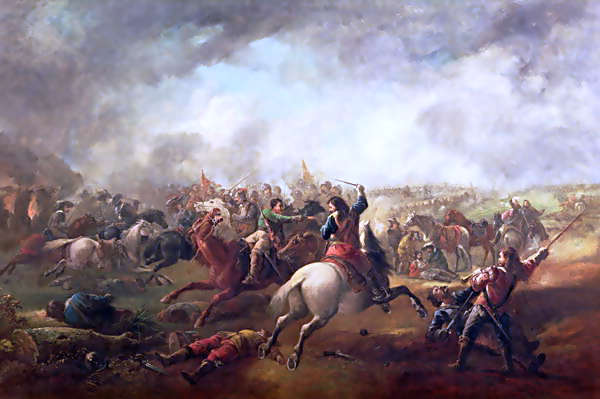

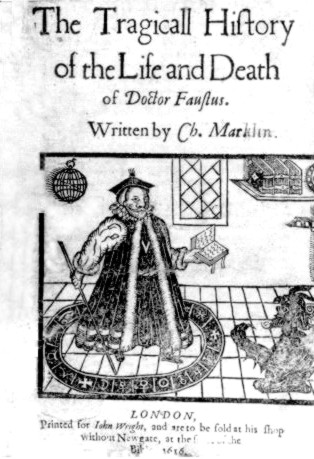
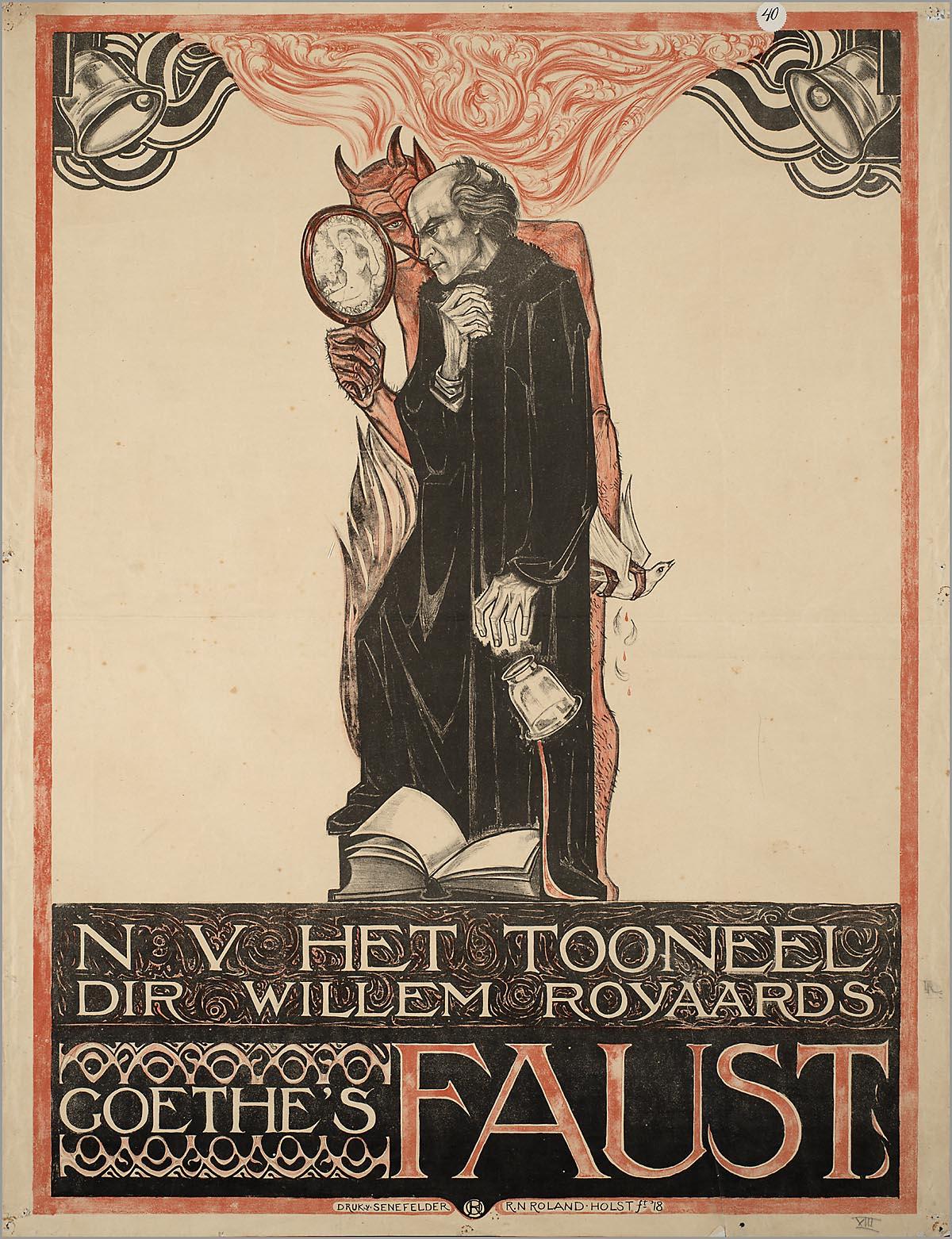
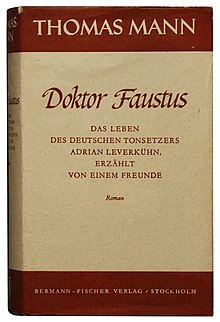
.jpg)
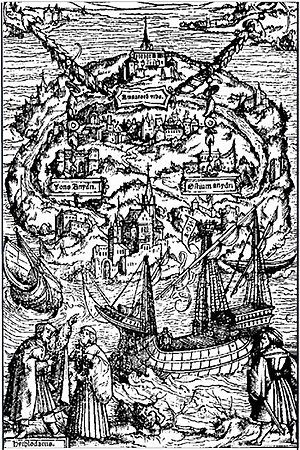
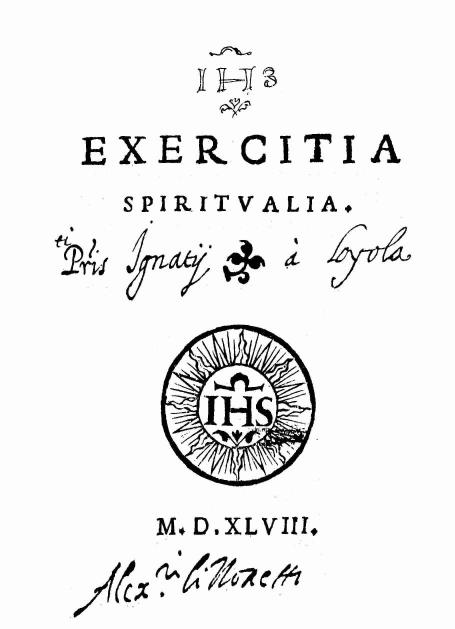
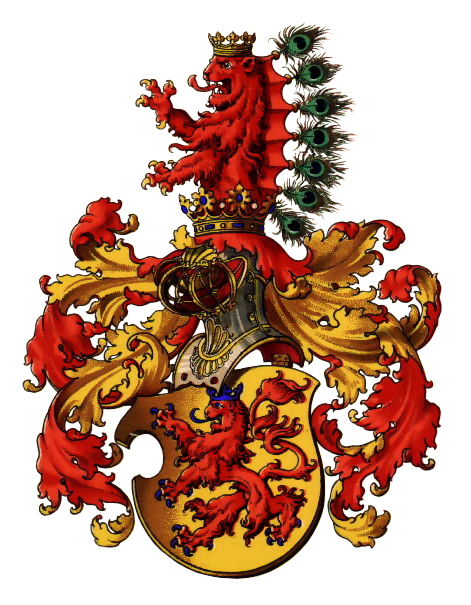


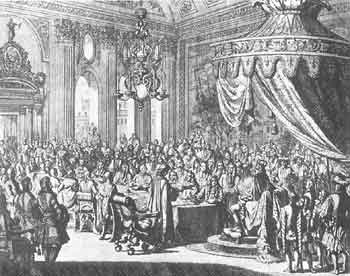





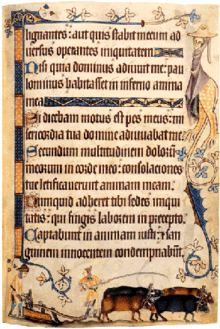







.png)



